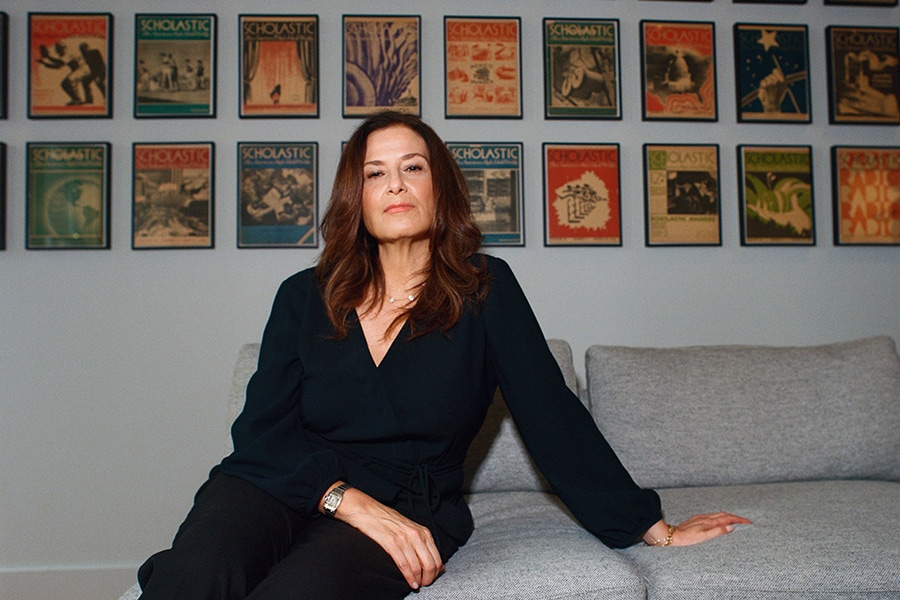
Succession at Scholastic seemed to be a shock, even to the new chair
Being handed control of the company, which is valued at $1.2 billion, has made Iole Lucchese, one of the most powerful women in book publishing
 Iole Lucchese, a senior executive and the new chairwoman of Scholastic, at the company’s offices in Manhattan on Oct. 4, 2021. The powerhouse children’s publisher, known for Harry Potter, had been passed from father to son until Lucchese was given control. (Lelanie Foster/The New York Times)
Iole Lucchese, a senior executive and the new chairwoman of Scholastic, at the company’s offices in Manhattan on Oct. 4, 2021. The powerhouse children’s publisher, known for Harry Potter, had been passed from father to son until Lucchese was given control. (Lelanie Foster/The New York Times)
When her phone buzzed June 6, Iole Lucchese was still absorbing a shock that had come the day before. Her longtime boss, M. Richard Robinson Jr., chairman and CEO of the Scholastic publishing company, had died suddenly while taking a walk with one of his sons and his former wife on Martha’s Vineyard.
Now, Scholastic’s general counsel, Andrew Hedden, was on the phone, delivering a second surprise.
He had called to inform her that 84-year-old Robinson — who turned his father’s book and magazine business into the largest publisher and distributor of children’s books in the world, known for thousands of beloved series, including "Clifford the Big Red Dog," "Hunger Games" and "Harry Potter" — had left Lucchese 53.8% of Scholastic’s Class A stock. The company where she had worked for 30 years, rising from a junior employee in the Canadian market to one of its top executives, was now a company she controlled.
“It was overwhelming,” Lucchese said in an interview at Scholastic’s headquarters in the New York City neighborhood of SoHo, water towers punctuating the cityscape behind her.
Being handed control of the company, which is valued at $1.2 billion, has made Lucchese, 55, one of the most powerful women in book publishing, and the stock provides her — the daughter of a construction worker and a homemaker — with significant wealth. The gift also shifts the business, which had been passed from father to son, to a person outside the family and puts Scholastic in an extremely unusual position for a public company: adapting to a succession plan many key players did not know was coming.
©2019 New York Times News Service







